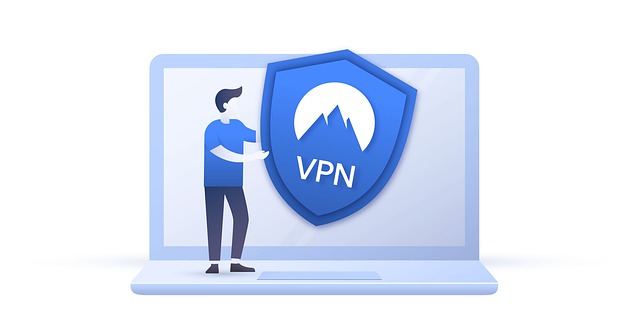A Beginner’s Guide to Using a VPN: Stay Safe and Secure Online
In today’s digital world, protecting your online privacy and security is more important than ever.
With the increasing number of cyber attacks, data breaches, and online privacy violations, it’s essential to take steps to keep your sensitive information safe.
A Virtual Private Network (VPN) is one of the best ways to do just that.
In this beginner’s guide, we’ll explore what a VPN is, how it works, and why you should consider using one.
What is a VPN?
A VPN is a secure network connection that encrypts all your online data, making it unreadable to anyone who intercepts it.
This technology allows you to connect to the internet through a server located in another location, effectively hiding your IP address and location.
This makes it much more difficult for hackers, government agencies, and advertisers to track your online activities and steal your personal information.
How does a VPN work?
When you use a VPN, your internet connection is first redirected to a server located in another location.
This server acts as an intermediary between your device and the internet, encrypting all your online data and hiding your IP address.
The encrypted data is then transmitted to the internet, where it is decrypted and sent to its intended destination.
One of the key benefits of using a VPN is that it encrypts all your internet traffic, making it much more difficult for anyone to intercept and steal your sensitive information.
This means that your online activities, including your emails, social media posts, and bank transactions, are kept private and secure.
Why use a VPN?
There are many reasons why you might want to use a VPN, including:
1. Protecting your privacy:
When you use a VPN, your online activities and personal information are kept private and secure, making it much more difficult for anyone to intercept and steal your data.
2. Avoiding censorship:
In some countries, access to certain websites and online content is restricted.
With a VPN, you can connect to a server located in another location, effectively bypassing these restrictions and giving you access to the internet as it was meant to be.
3. Enhancing security:
When you use a public Wi-Fi network, your sensitive information is vulnerable to interception by hackers.
With a VPN, all your online data is encrypted, making it much more difficult for hackers to steal your sensitive information.
4. Bypassing geo-restrictions:
Many online streaming services and websites have geographical restrictions, making it impossible to access their content from certain locations.
With a VPN, you can connect to a server located in a location where the content is available, allowing you to bypass these restrictions and access the content you want.
Choosing the Right VPN
With so many VPNs available, it can be difficult to choose the right one for your needs.
When selecting a VPN, consider the following:
1. Security:
Make sure the VPN you choose uses high-level encryption to keep your data secure.
Look for VPNs that use encryption protocols such as OpenVPN, IKEv2, or WireGuard.
2. Privacy:
Choose a VPN that has a clear privacy policy and doesn’t log your online activities.
Some VPNs may sell your data to third-party advertisers, so be sure to choose one that doesn’t.
3. Speed:
A slow VPN can be frustrating, especially if you’re trying to stream content or play online games.
Look for VPNs that offer fast speeds and low latency.
4. Server locations:
The more server locations a VPN has, the more options you have for bypassing geo-restrictions.
